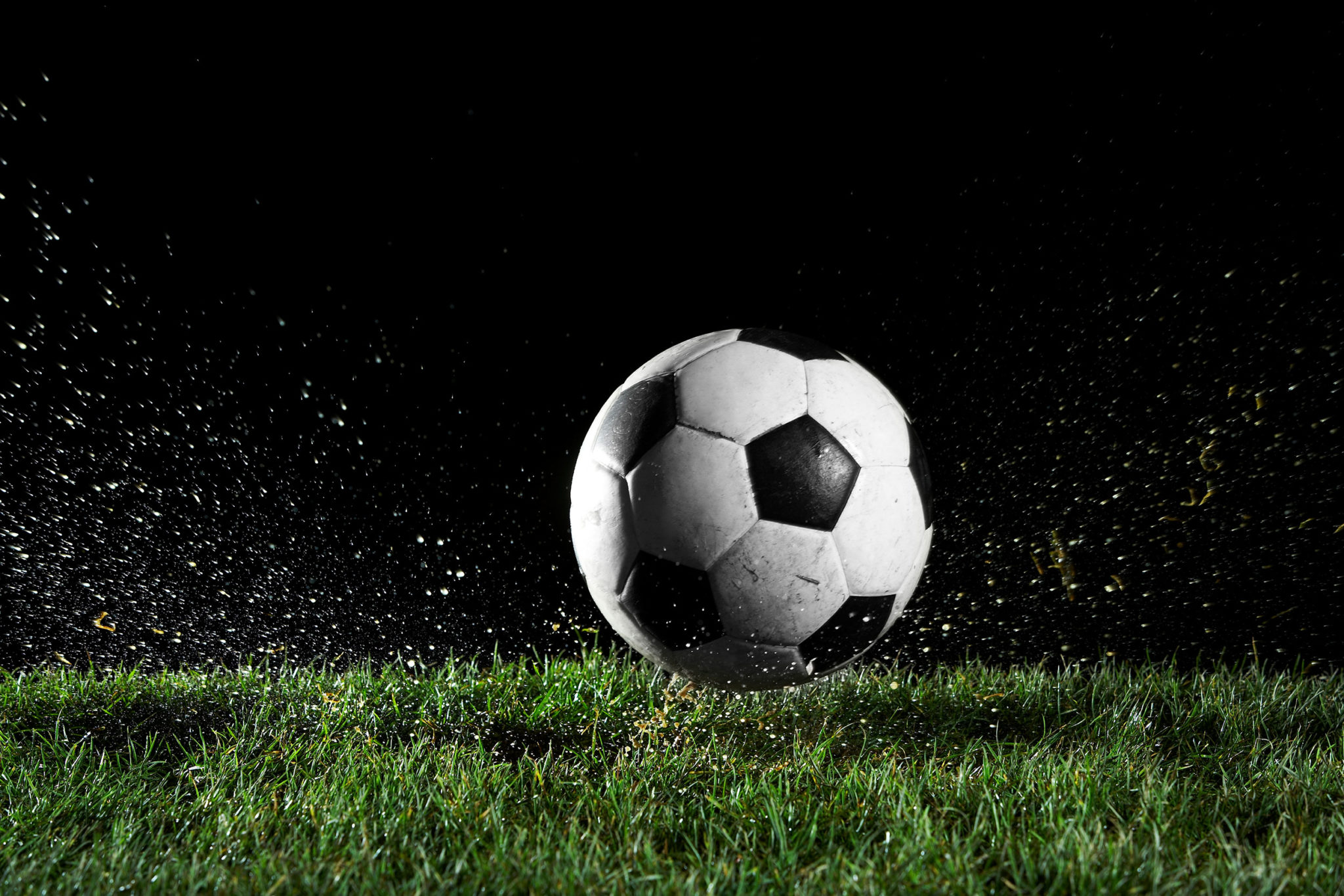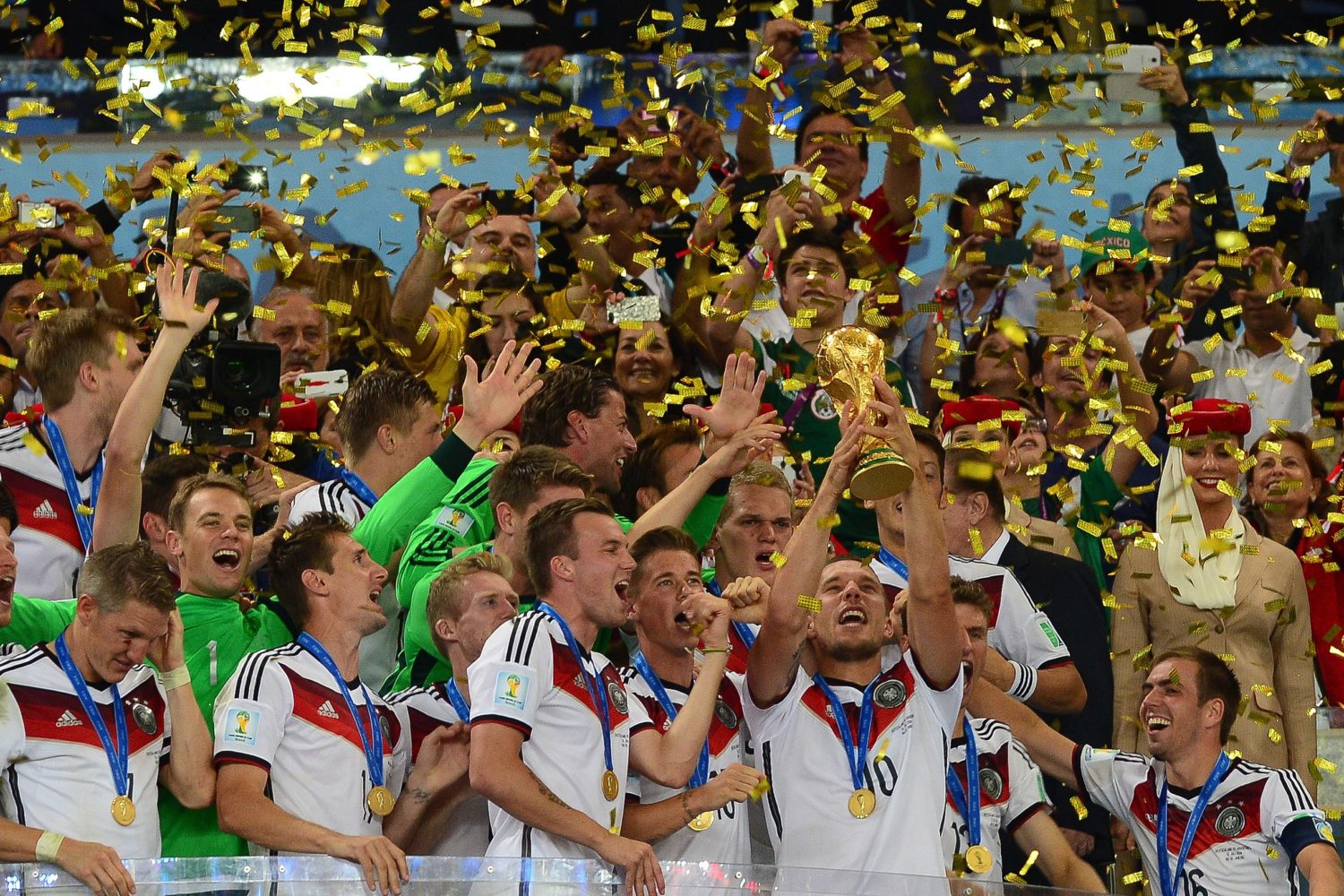It’s 3:08 AM when I stumble through the doors of Astro Beer Hall to watch the soccer game. The couple beside me is drinking cocktails. A young man orders a pitcher of Bud Light. Having emerged from bed exactly 21 minutes ago, I ask for a green tea to clear my head. The bartender looks annoyed, then sympathetic, and says, “Okay, I can do that for you.” After a beat, she clarifies: “You mean the shot, right?”
That, in essence, is what it’s like to watch the Women’s World Cup at a bar in the middle of the night: confusing, tiring, weird. Emphatically, I do not want the shot, so I sip an orange juice, slouch on a stool, and stare blankly at the TV where the US Women’s National Team—playing in New Zealand, where I’m told it’s a normal time—sprints up and down the field. My eyes swim. There is no logic. I’m too bleary to even see the ball.
I don’t know much about soccer, just that this match is medium-stakes; the US needs to tie or win in order to advance to the next round. Nobody seems terribly worried. The US team is the two-time reigning World Cup champion, and while their playing of late has been shaky, losing to Portugal would be bizarre. I can’t quite figure out why anyone, including myself, showed up. Who in their right mind watches a 3 AM game on a Monday night during the least exciting phase of the tournament? Don’t we all want to sleep?
Really, it’s only a dozen people scattered around the bar, watching TVs in clusters of two or three, drinking in relative silence. Just then, the US team circles the goal like sharks and I hear a distant rumbling from behind me that barely registers at first—a radio left on in a back room, a train rumbling by underground. The bartender hears it, too, and turns to her colleague. “Who’s got the fucking drum?”
“Drum?” I ask, and the couple next to me explains that there’s a person downstairs beating a drum—an actual physical drum—in order to “build momentum.”
“There are people downstairs?”
“Oh, yeah, like a hundred. We’re just up here because there’s a shorter line for the bar.”
Downstairs is cavernous—rooms jammed with people in soccer jerseys slamming beers and shouting at the TVs. The vibe is “basement in Milwaukee”: kegs, arcade games, a pool table, a wall of lava lamps, profligate cursing and drinking, crowding around the screens. There are so many people—men and women both, in roughly equal proportion—140 of them, the manager will later say. Already, my ears throb, which is only somewhat related to the as-yet-unlocated drum.
Above the rowdiest of the rooms hangs a blue flag featuring the face of George Washington, an emblem of the DC chapter of the American Outlaws, which is the fan group that’s hosting the event. And at the front of that room, I spy it: a table laid with team-branded scarves upon which rests a large, band-grade drum. Beside the table, someone with pink hair is shouting into a megaphone that it’s last call. “You can do beer and shots until four,” they say, “but there is no alcohol after four, I cannot emphasize this enough.” It’s 3:34 AM.
By now, the orange juice has hit my bloodstream and my brain is showing weak yet persistent signs of life, so I order my first beer of the day, which apparently will also be my last. At this moment, Rose Lavelle—a midfielder—gets a yellow card and the room erupts. “Fuck you!” a man screams at the ref, his voice cracking. Outraged shouts ripple across the room. Then the drum starts beating, and a patriotic song-chant breaks out. An American player grabs the ball and streaks up the field. “Get on your horse,” the man beside me bellows, while doing a full-body giddy-up dance. No goal.
Circling the room, the manager points at my mostly full beer and informs me that I have 14 minutes to drink it. I don’t understand; the game isn’t even halfway done. But he shakes his head and mutters something about DC law and how if there were a loophole, he’d have found it. “And I don’t like to waste beer, so…” As he walks away, he literally taps his watch at my face.
If I were a better reporter—or a less tired one, at least—halftime would be my moment, a chance to circle the room asking people about their night. Instead, I turn to the guy next to me and ask if, after this, he has to work. His name is Mateo, and he’s a teacher, so no, he’ll just be sleeping. Then, without warning, he swivels his head in the direction of the nearest TV.
“Oh my god have you seen this commercial?” he shrieks. Onscreen, there’s an animation—a colorful soccer-playing figure smoking defenders left and right. “I would buy the FUCK out of a Megan Rapinoe action figure,” Mateo yells. Then he does a guitar shredding motion with his arms and sings along with the ad: “Megan Rapinoe, all-American hero.” To the screen, he howls, “Nike—take my money!”
Presently, the person with the megaphone is shaming us—explaining that they haven’t slept because they spent all day driving from Chicago, and if they’re still amped enough to make noise, then we, the crowd, can too. This person is Jake Didinsky, a professional DJ who moonlights as the president of the DC chapter of American Outlaws.
Later, Didinsky will inform me that beating the drum and leading chants is, in part, a distraction from their nerves. Not only are they having panicked flashbacks to the men’s team falling to Trinidad and Tobago in 2018 (thereby failing to qualify for the tournament)—but there’s also a political issue.
“A lot of people don’t want to say this out loud,” Didinsky explains, “but the women led a successful campaign for equal pay. And in my mind, the catastrophic scenario would be that now, after they’ve gotten the equal pay, the very first major tournament they go to, they don’t advance to the knockout stage.” They gesture to a sportscaster on TV. “All I can think about is tomorrow when this guy is going out and laughing like, ‘Oh, they should have been focused more on sports and less on politics.’”
Somehow, this had not occurred to me—but it’s obvious to me that Didinsky is right. Two weeks ago, on the night of the Vietnam match, I was in an Uber heading home. Cheerfully, the driver told me that he loves the Women’s World Cup, then added that he’s bewildered that the soccer is so compelling to watch, since women aren’t great athletes overall. Other topics followed—”Was Dan Snyder really accused of anything bad?” and “Why are beauty pageants removing the swimsuit competitions?”—but in the moment, it was so late, and I was so tired. All I did was weakly protest. If the women’s team loses to Portugal, that’s exactly the kind of guy who will blame it on equal pay. I probably should have said more.
It is now 4:17 am, and the decibels are rising. People are stressed out. There’s still no score. The coach subs in Rapinoe and the room explodes, but Portugal still seems in command. Frenetically, Didinsky rallies the crowd: call-and-response, quasi-melodic singing, clapping along with the drum. “Are we having fun yet?” they howl, which is met with anemic cheers.
By this point, I’m fading. I slept for about two hours, and now I’ve been awake for two more. My blood sugar is crashing, and my beer is gone. To clear my head, I do a quick lap, into the quieter rooms, where I can finally get up close to the screen.
For a moment, I stand in front of a TV and watch this field of women. They are definitely not at their best. In ten or so minutes, when the game wraps, the players will be frustrated and the pundits will pounce. But now the camera cuts to Alex Morgan—one of the team’s star forwards—who appears to be utterly spent. Obviously she is. All the women are, after almost two hours of play with hardly any subs.
It’s staggering, actually, when I think about it—that a lot of these women are my age, that three of them are moms, that many of them are recovering from injuries, some from tragedies. That this team won the last two World Cups and just won equal pay last year. That even as the time leaks out, they’re still pushing up and down the field, shouting to one another, looking for openings, for advantages to press. Alex Morgan grabs the ball, breaks through a defensive line, and gets a shot off a couple moments too late. To my right, a couple of disappointed men scream at her through the screen.
Still, Morgan is sprinting—moving breathlessly past some defenders, covering an astonishing portion of the field. I don’t know how she’s still out there. It’s exquisite to watch her run.

















